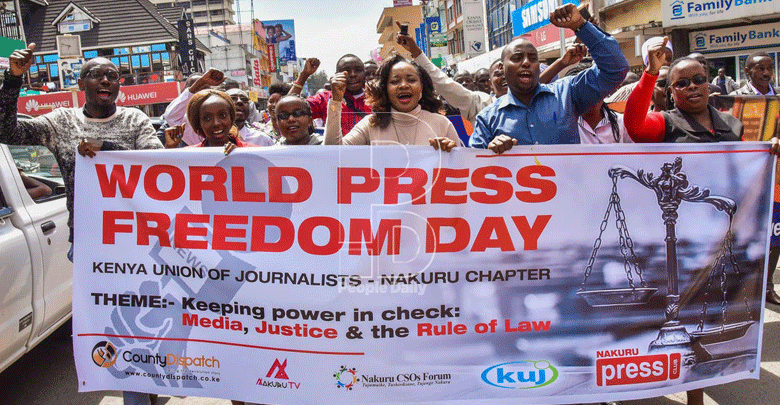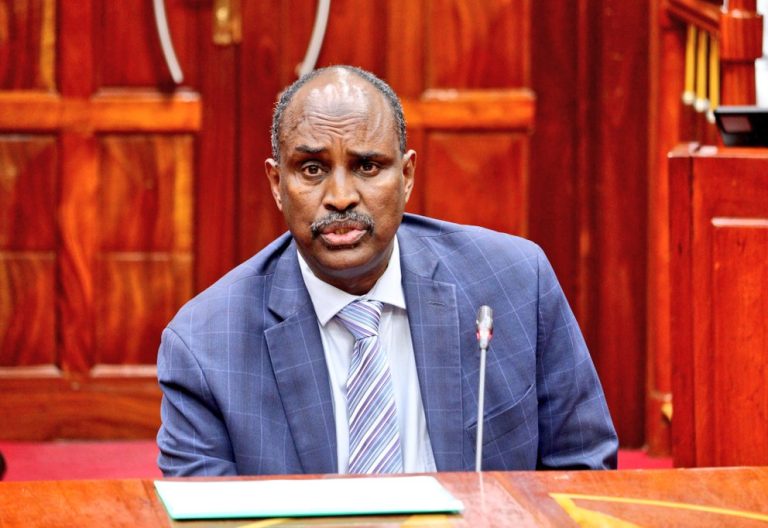Focus should shift to taking media freedom to the next level

Maina Muiruri
The world today marks the World Press Freedom Day (WPFD) 2021 under the apt theme, `Information as a Public Good’.
The Media Council Kenya (MCK) is honoured to anchor the celebrations in Nairobi at a time when the world media family is steeped against myriad challenges that must be overcome if the goals for media independence are to be achieved.
It is worthy of note that the celebrations are being done alongside the international major event in Windhoek, Namibia, that will be a culmination of WPFD global activities.
Africa remains in focus as one of the regions where media freedom is still a lagging work in progress.
Indeed, in our own East African region, Kenya remains the leading light in showing the way to freedom of the press while several neighbours face varied challenges.
This day will serve to remind ourselves of the journey we have walked in ensuring laying down solid building blocks of professional, free and independent media and in giving shape to the cherished dream of information as a public good.
It is significant to underline that Namibia is hosting the global event on the 30th anniversary since the Windhoek Declaration was drawn in 1991, at which the idea of cementing media freedom in the world took shape, and at which convention Kenyan journalists played a prominent role alongside industry players from around the world.
The core point spelt out in the Declaration was the need to nurture a free and independent press.
The Declaration envisaged a press liberated from government, political or economic control.
Equally, it stood against monopolies in the media industry and defended the widest possible distribution of media. This is the spirit underscored in the Kenyan Constitution’s Articles 33, 34 and 35.
The Government of Kenya is a signatory to the Open Government Partnership, and has many times indicated its commitment to open governance and adherence to the Constitution.
Digital platforms such as websites, the Kenya Open Data Portal, Integrated Financial Management Systems and social media accounts for government departments and public officials have increased the avenues for holding government to account through sharing of information.
Article 35 and Access to Information Act 2016 gives every citizen the right to freedom of expression which covers: freedom to seek, receive or impart information; freedom of artistic creativity; academic freedom and freedom of scientific research.
It has also limited these freedoms so as not to include: propaganda for war; incitement to violence; hate speech; advocacy of hatred, which may constitute ethnic incitement, vilification of others or incitement to cause harm.m
A free, independent media, can have a profound influence on people’s opportunities to access information and services.
The media has a critical role to mediate between the State and citizens through facilitating debate on major issues of the day.
In performing the watchdog role, the media can check government and other agencies’ adherence to corporate governance standards to ensure transparency, accountability and scrutiny of the decisions and actions of the leadership
Despite the developments noted in the media sector, as we launch the media sector legal audit report, we note that Kenya retains in its statute books, laws that restrict speech for various reasons and which must be recast for review if progress is to be achieved.
The most invidious of these statutes are: The Books and Newspapers Act that provides for the registration and deposit of books and newspapers and the execution of bonds by printers and publishers and the Defamation Act that introduced exceedingly high minimum amounts of damages that must be awarded for certain types of libel.
Expanded media space is not only crucial to the democratic process but remains pertinent to impartation of information to the public.
The MCK, jointly with stakeholders, has engaged with ICT ministry and other industry players with recommendations to institute several legal and policy reviews to improve the working environment for the media.
Among the recommendations is the development of a comprehensive media policy and review of several Acts. — The writer is the chairman, Media Council of Kenya








